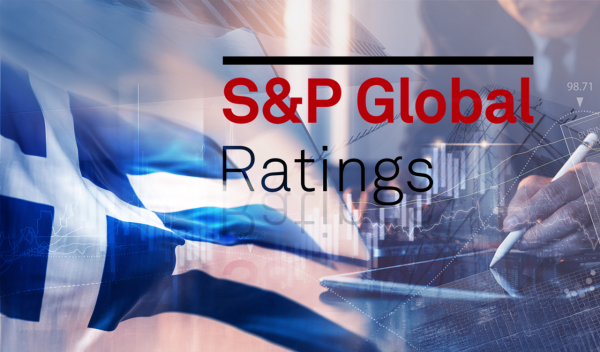
Greece occupies the unflattering bottom spot regarding hourly wage rates among EU member states – all recorded increases to varying degrees – in the 3rd quarter of 2024, according to data by the Union’s statistical authority, Eurostat.
Greece posted a 2.9% rate drop, with the European Union average over the same quarter recording a 5.1% rise (4.6% in the Eurozone) in the hourly wage rates, while countries like Croatia and Romania posted 17% and 14% increases.
Greece experienced significant fluctuations in labor costs over recent quarters, as in the third quarter of 2023 it saw a 6.7% increase, followed by a further 9.3% rise in the second quarter of 2024, finally registering a notable reversal dropping in the third quarter of this year.
In contrast, the average hourly labor cost increased across the Eurozone and the European Union in the third quarter of 2024 compared to the same period in 2023:
- Eurozone: A 4.6% increase in hourly labor costs.
- EU: A 5.1% rise in hourly labor costs.
Labor costs are composed of two primary components:
Wages and Salaries: In the Eurozone, hourly wages and salaries rose by 4.4% in Q3 2024 compared to Q3 2023.
Non-Wage Costs: This component saw a sharper increase of 5.2% in the Eurozone.
For the EU, wages and salaries increased by 5.0%, while non-wage costs rose by 5.3%.
These figures highlight diverging trends in Greece’s labor cost dynamics compared to the broader Eurozone and EU, reflecting shifts in economic and employment conditions.
Source: Tovima.com
Latest News

Corruption Still Plagues Greece’s Driving Tests
While traffic accidents continue to claim lives on Greek roads daily, irregularities and under-the-table dealings in the training and testing of new drivers remain disturbingly widespread

Pope Francis Died of Stroke and Heart Failure Vatican Confirms
As news of the official cause of death spread, tributes poured in from across the globe. The 1.4 billion-member Catholic Church is united in grief, remembering a pope who championed inclusion, justice, and compassion

Increase in Both Museum Visits, Revenues for 2024
As expected, the Acropolis was the top archeological site in the country, followed by Sounion, Mycenae, the ancient theater of Epidaurus, and Vergina in northern Greece

Where Greece’s Tourists Come From: A Look at 2025’s Top Visitor Markets
The United Kingdom continues to hold the top spot as the largest source of incoming tourism, with 5.6 million seats booked for Greece this summer — up 2.2% from last year. This accounts for 20% of all international air traffic to Greece

Pope Francis: A Pontiff Who Reshaped the Papacy and Sparked a Global Conversation
His first words from the balcony of St. Peter’s Basilica—“Brothers and sisters, good evening”—set the tone for a pontificate that would challenge norms, favor mercy over dogma, and bring the papacy closer to the people.

When Blue Skies was Unmasked as ND’s Political ‘Slush Fund’
The fact that so many top New Democracy (ND) party cadres were paid by the firm Blue Skies, owned by Thomas Varvitsiotis and Yiannis Olympios, without ever citing this publicly, raises very serious moral issues, regardless of the legality

Greek Women’s Water Polo Team Top in the World after 13-9 Win Over Hungary
The Greek team had previously defeated another tournament favorite, the Netherlands, to reach the final.

S&P Raises Greek Rating; BBB with Stable Outlook
S&P’s decision raises the Greek economy to the second notch of investment grade ladder, at BBB with a stable outlook.

Greek Tourism Optimistic About Demand from American Market
A recent survey by MMGY Global, conducted from April 3–5 with a sample of 1,000 U.S. adults, found that 83% of Americans still intend to take leisure trips over the next 12 months, a slight drop from 87% in late February

New Exposé by Domumento Reveals Nefarious Triangular Link of ‘Black Money’ with New Democracy, Blue Skies, & Truth Team
The latest exposé by the Documentonews.gr news site lays bare what appears to be a surreptitious path of indirect financing of ND through the business sector—transactions that, as widely understood, rarely occur without expectations of reciprocal benefit











![Πλημμύρες: Σημειώθηκαν σε επίπεδα ρεκόρ στην Ευρώπη το 2024 [γράφημα]](https://www.ot.gr/wp-content/uploads/2025/04/FLOOD_HUNGRY-90x90.jpg)


![Ξενοδοχεία: Μεγάλο το ενδιαφέρον για επενδύσεις στην Ελλάδα – Η θέση της Αθήνας [γραφήματα]](https://www.ot.gr/wp-content/uploads/2025/03/Athens-hotels-90x90.jpg)


![Airbnb: Πτωτικά κινήθηκε η ζήτηση τον Μάρτιο – Τι δείχνουν τα στοιχεία [γράφημα]](https://www.ot.gr/wp-content/uploads/2024/07/airbnb-gba8e58468_1280-1-90x90.jpg)























 Αριθμός Πιστοποίησης
Αριθμός Πιστοποίησης